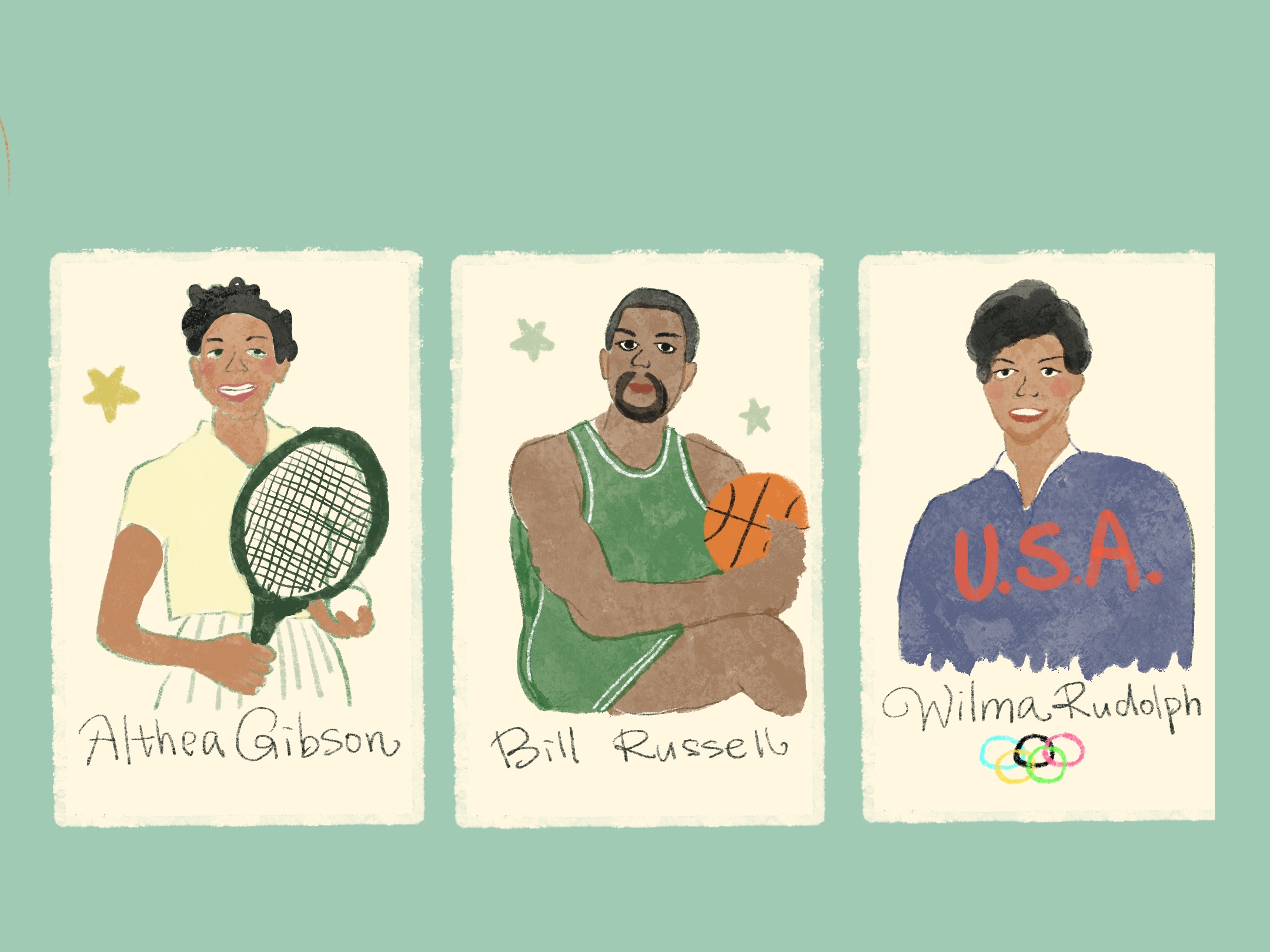From Althea Gibson to Wendell Scott: A history lesson on some of the lesser-known Black athletes that redefined their sport
During Black History Month, it’s important to take the time to remember those who broke barriers so others could break records.
Everyone knows the household names of Lebron James, Mohammed Ali, Simone Biles, and many more renowned Black athletes. But how many people know of Wilma Rudolph, Althea Gibson, and Bobby Marshall? These athletes are of the few to break records and make names for themselves only to be forgotten decades later.
As the world of athletics continues to reach new heights, it’s imperative that we remember those across every sport — from basketball to baseball, soccer, football, gymnastics, and even rock climbing — who reshaped traditional narratives and paved the way for the next generation.
Esteemed Black athletes of the past
Althea Gibson was the very first Black tennis athlete to win the French, Wimbledon, and U.S. Open singles championships. She dominated the field of tennis in the 1950s as the first Black woman athlete to join various singles championships. In 1957, after various tournament wins, Gibson was voted the Female Athlete of the Year by the Associated Press; the very first female Black athlete to receive this title.
Wilma Rudolph, the 20th child of 22, struggled to walk for 12 years. Many doctors believed she would be paralyzed forever. Six years later, she competed in her first-ever Olympics, winning bronze in the 4×100-metre relay. Four years later, she became the first-ever African American woman to win three gold medals at the 1960 Olympics for track and field.
Bill Russell, although an afterthought to many basketball fans nowadays, helped lead the University of San Francisco to the National Collegiate Athletic Association through his defensive plays. Those same plays led him to win 11 NBA titles for the Boston Celtics ⎯ the most out of any player in NBA history. In 1966, he also became the first African American coach of a modern major professional sports team in the United States as a player-coach for the Celtics.
Fritz Pollard, after serving in World War I, began playing professional football as the second Black player in the league at that time and led the Akron Pros to the league championship. The following year in 1921, he became the first ever head Black coach as he continued to play professionally, eventually founding his own professional team named the Black Hawks.
Bobby Marshall, an all-around athlete, used to play first base in college baseball, lettered in track and excelled in hockey and boxing. He was first to Fritz Pollard to become an NFL player. Although he retired from football at 44, he came back to play once more six years later during an exhibition game. He was honoured 13 years after his death with an induction into the College Football Hall of Fame.
Charlie Sifford was the first Black golf player to receive a Professional Golfers’ Association (PGA) card, which qualified him for a professional golf tour. His qualification only came a decade after the colour barrier for Black athletes broke for professional baseball, football, and basketball players. In total, Sifford earned 22 professional wins and was later gifted the Presidential Medal of Freedom by Barack Obama in 2015.
Arthur Ashe was the first African American to be numbered one in the entire world as a tennis player. He was, and remains to be, the first Black athlete to win the U.S. Open and Wimbledon men’s singles titles. He was also the first Black tennis athlete to be included in the Tennis Hall of Fame. He won 18 titles before retiring and focusing on his health foundation, raising awareness for AIDS.
Debi Thomas was known for being the first Black woman to win the world figure skating championships in 1986. Two years later, she won bronze in the Winter Olympics. Unlike many professional athletes, Debi retired early in her career to become an orthopedic surgeon, though she claims figure skating holds a special place in her heart.
Willie O’Ree was Canada’s first Black hockey player. He made his debut in 1958 against severe stigma and race challenges. Although blind in one eye, he never let that deter him from scoring four goals in the 45 NHL games in which he played, as well as two scoring titles in the Western Hockey League (WHL). In 2018 he was inducted in the Hockey Hall of Fame for his contribution to the NHL and the barriers he broke within the sport.
Wendell Scott was the first African American to win a NASCAR race in 1963. Unfortunately, it wasn’t until 2021 that his family received the trophy in his place. Racial challenges prohibited Scott from ever receiving the one and only trophy he ever won in his entire career. However, it eventually reached his family, and his name is forever etched into NASCAR’s Hall of Fame.
Camryn Rogers, a legendary field athlete, was Canada’s first-ever Olympic medalist in hammer throw. She broke Canada’s streak of no gold medals in any women’s Olympic events since 1928 and went on to win various hammer-throw tournaments throughout her career.
Flo Hyman is remembered as an all-star volleyball player of her time. From earning the collegiate All-American three times to being recognized as one of the greatest and most valuable volleyball players across the globe, Hyman earned her first Olympic silver in 1984. She continued to claim various titles until she passed away on the court in 1986. Her legacy continues to this day.
Misty Copeland made history as the first Black woman to be placed as the American Ballet Theatre’s principal dancer. Copeland achieved a historical milestone that no Black woman had accomplished since the organization’s founding in 1940. Since then, she’s published two books, filmed a documentary, and served in Barack Obama’s council.
All these athletes represent the historical milestones of the lives of Black athletes. So, during this month, let us celebrate these remarkable athletes.

